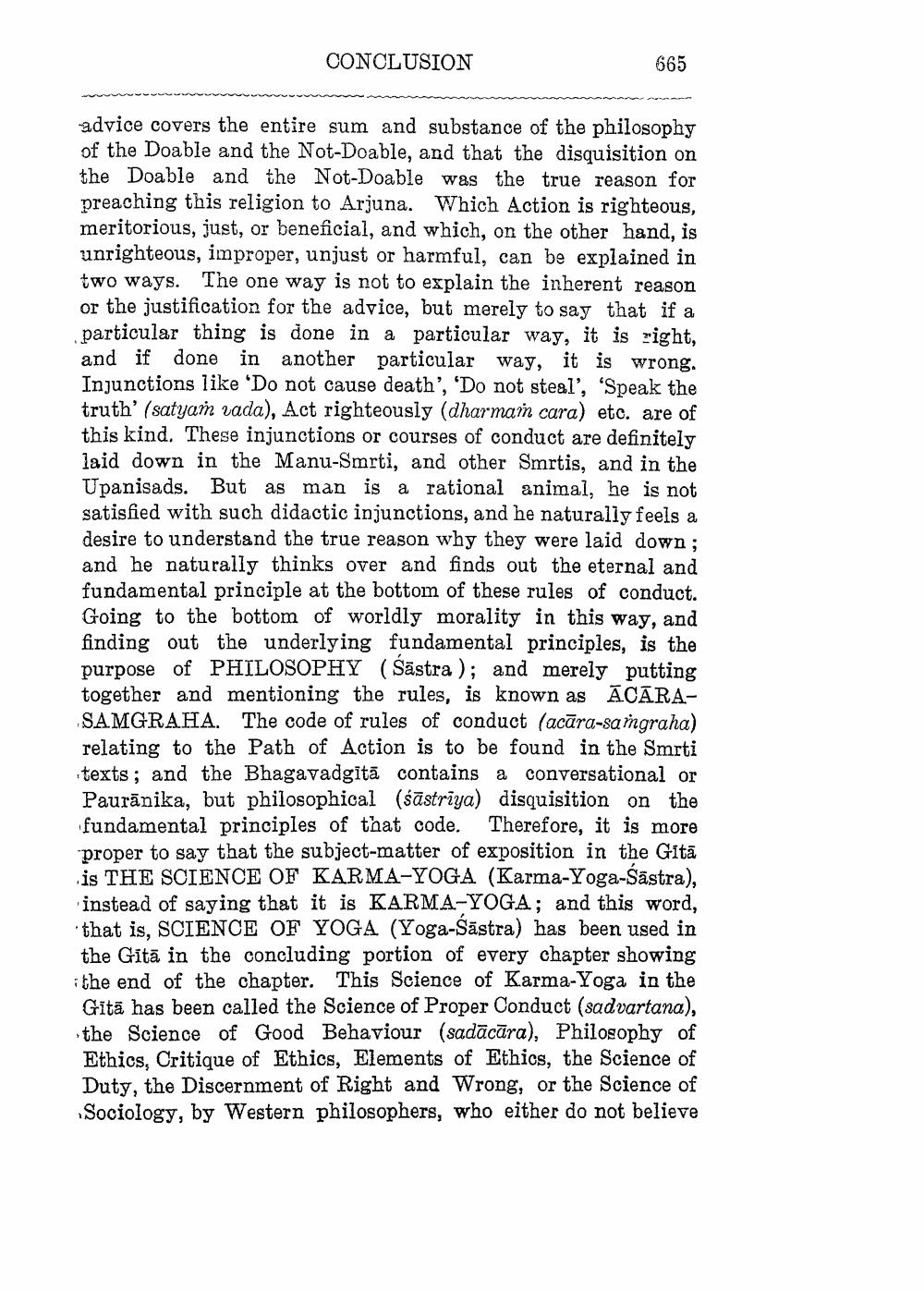________________
CONCLUSION
665
advice covers the entire sum and substance of the philosophy of the Doable and the Not-Doable, and that the disquisition on the Doable and the Not-Doable was the true reason for preaching this religion to Arjuna. Which Action is righteous, meritorious, just, or beneficial, and which, on the other hand, is unrighteous, improper, unjust or harmful, can be explained in two ways. The one way is not to explain the inherent reason or the justification for the advice, but merely to say that if a particular thing is done in a particular way, it is right, and if done in another particular way, it is wrong. Injunctions like 'Do not cause death', 'Do not steal', 'Speak the truth' (satyam vada), Act righteously (dharmar cara) etc. are of this kind. These injunctions or courses of conduct are definitely laid down in the Manu-Smrti, and other Smrtis, and in the Upanisads. But as man is a rational animal, he is not satisfied with such didactic injunctions, and he naturally feels a desire to understand the true reason why they were laid down ; and he naturally thinks over and finds out the eternal and fundamental principle at the bottom of these rules of conduct. Going to the bottom of worldly morality in this way, and finding out the underlying fundamental principles, is the purpose of PHILOSOPHY (Sāstra); and merely putting together and mentioning the rules, is known as ACARASAMGRAHA. The code of rules of conduct (acāra-sangraha) relating to the Path of Action is to be found in the Smrti texts; and the Bhagavadgitā contains a conversational or Paurānika, but philosophical (śāstriya) disquisition on the fundamental principles of that code. Therefore, it is more proper to say that the subject-matter of exposition in the Gitā is THE SCIENCE OF KARMA-YOGA (Karma-Yoga-Sāstra), instead of saying that it is KARMA-YOGA; and this word, that is, SCIENCE OF YOGA (Yoga-Sāstra) has been used in the Gitā in the concluding portion of every chapter showing the end of the chapter. This Science of Karma-Yoga in the Gitā has been called the Science of Proper Conduct (sadvartana), the Science of Good Behaviour (sadācāra), Philosophy of Ethics, Critique of Ethics, Elements of Ethics, the Science of Duty, the Discernment of Right and Wrong, or the Science of Sociology, by Western philosophers, who either do not believe




